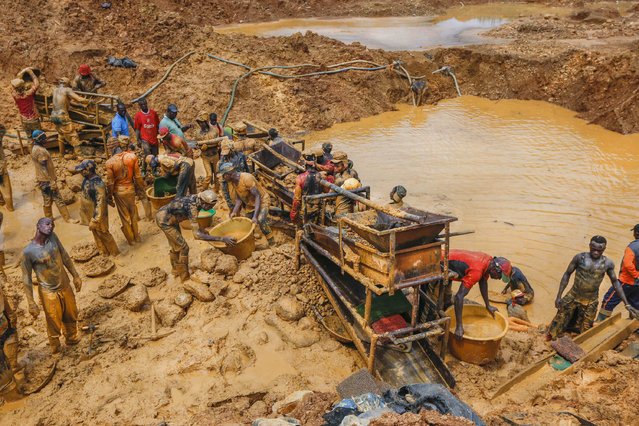Ghana Rubber Estates Limited (GREL) faces one of its factories’ potential shutdown due to severe encroachment on its plantation by illegal mining activities.
The Corporate Affairs Manager-GREL, Perry Acheampong, laments that “we are unable to access parts of the plantation”. Once the land is taken over the trees are destroyed, leading to a loss in production,
Describing the situation to this Paper’s Western Region correspondent, Mr. Acheampong noted that illegal mining activity is threatening the company’s operations and sustainability.
GREL operates two factories in the Western Region with a combined capacity of 20 tonnes per hour. Other processing factories include NARUBIZ Ltd. (1 tonne per hour), Rubber Plantations Ghana Ltd. (RPGL) (0.8 tonnes per hour) and APEX Rubber Processing (1 tonne per hour).
Additionally, the company is facing a water crisis as all nearby water sources have been polluted by illegal mining activities.
“We use a lot of water at the factory but illegal mining has polluted our water sources, making it unusable for operations. At one point, we had to temporarily shut down the factory due to this issue. If it persists, we may be forced to close one of our factories, which employs 600 direct staff,” said Mr. Acheampong.
His concerns raise the urgent need for stakeholders in the sector to develop new strategies for addressing the illegal mining issue and prevent the factory from collapsing. GREL is one of the country’s largest agribusinesses, playing a crucial role in job creation and economic growth.
Currently the company has 13,093 hectares of land planted with rubber. A total of 9,555 hectares are under tapping.
In 2022, exports of Technically Specified Rubber – processed natural rubber graded for industrial use – and natural rubber sheets generated approximately US$131.3million, according to data from the Ghana Export Promotion Authority.
The state holds a 26.75 percent stake in GREL’s operations and, in addition to statutory payments, the company also pays dividends.
From the foregoing, it is imperative that the state has an interest in protecting this vital agri-business concern which contributes to growth of the economy. There is a renewed call to tackle the illegal menace and GREL’s instance illustrates why this administration cannot rest on its oars.










